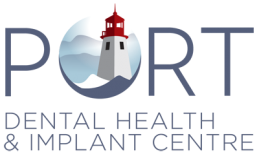Sedation Dentistry
If anxiety or fear when visiting the dentist prevents you from visiting your dentist, please contact our office to find out what solutions can be offered to reduce those feelings so you maintain the health of your mouth. Patient comfort and relaxation of our patients during dental visits is of our top priority.
Some common dental fears include:
- Fear of embarrassment about the condition of teeth.
- Fear of gagging.
- Fear of injections.
- Fear of loss of control.
- Fear of not becoming numb when injected with local anesthetic.
- Fear of pain.
- Fear of the dentist as a person.
- Fear of the hand piece (or the drill).
Tips for reducing fear or anxiety:
Open Communication with our staff – Though it can be hard to talk about fears with a stranger, our dental staff is extremely understanding and can take extra precautions during visits if fears and anxiety are communicated.
Agree on a signal – Many people are afraid that the dentist will not know they are in significant pain during the appointment. The easiest way to resolve this is to agree on a “stop” signal such as raising the left hand. Treatment will immediately stop and the issue addressed.
Bring a portable music player – Bringing your own music to relax you and take your mind off of dental treatment can significantly reduce anxiety. It will also help to drown out certain sounds of dental equipment that bother patients.
Sedation – If there is no other way to cope, oral sedation or IV sedation offers an excellent option for many people. Such options will reduce or eliminate anxiety and make time go much faster in the dental chair.
Nitrous Oxide Sedation
Nitrous oxide is proven safe (and effective!) sedative agent. Administered by mixing with oxygen and inhaled through a small mask that fits over your nose to help you relax, this is one option your dentist may offer to help make you more comfortable during certain procedures. Sometimes called “laughing gas”, it is not intended to put you to sleep. You will be able to hear and respond to any requests or directions the dentist may have. Your dentist will ask you to breathe normally through your nose, and within a few moments you will begin to feel the effects. Some people may feel light-headed, some people say their arms and legs feel heavy. Ultimately, you will feel calm and comfortable. The effects are not long lasting, wearing off soon after the mask is removed.
Talk to your dentist about whether nitrous oxide would be a good option for you.
Oral sedation
Oral sedation is administered one hour before the dental procedure. Patients much come to the dental office to take the sedation and not leave the office while waiting for it to take effect.
The oral sedative will take the edge off of someone’s anxiety but will not put you under completely. This means that you are still able to communicate with us any concerns or problems you may experience during the dental procedure.
The two main oral sedatives used in dental practices are Ativan or Triazolam. The drugs can have an amnesiac effect which is an added benefit to this type of sedation.
An adult must pick you up after the dental procedure and ideally stay with you for the rest of the day. This is for safety and liability reasons.
It is important to make sure you and your dentist are on the same page for the treatment to be done before taking the sedation. Often times, unexpected findings can occur during dental treatment that can change a dentist’s recommendation. If you have not confirmed these possibilities and consented to one over the other your dentist may choose to the stop the treatment altogether and discuss it again when you are not sedated.
Oral Sedation Q&A
What are the contra-indications to oral sedation?
This can vary depending on the type of oral sedation being used in the office. It is very important to inform your dentist of all medications or health concerns you have even if you believe it to be unrelated. Some contra-indications include:
- Any known drug allergies
- Narrow-angle glaucoma
- Pregnancy
- Severe respiratory disease (COPD)
- Congestive heart failure (CHF)
- Impaired kidney or liver function
- Depression/bipolar disorder/psychoses
- Chronic bronchitis
Can I eat before my procedure?
If your procedure is scheduled for the morning then you should not eat anything with the exception of water. If you are scheduled for the afternoon you can have a light meal 5-6 hours prior.
What instructions should I be prepared to follow after having oral sedation?
Have an adult escort you home and stay with you until you are fully alert.
Do not perform any hazardous or strenuous activities or operate motorized equipment until the next day
Do not ingest alcohol or take any medications for the day unless otherwise approved by your dentist
